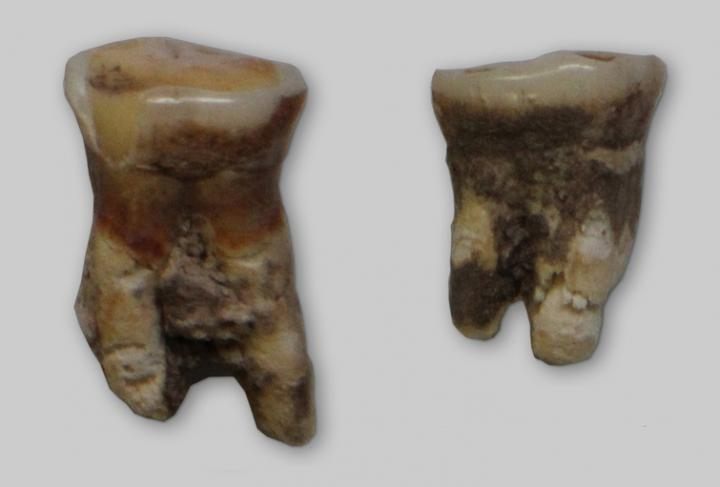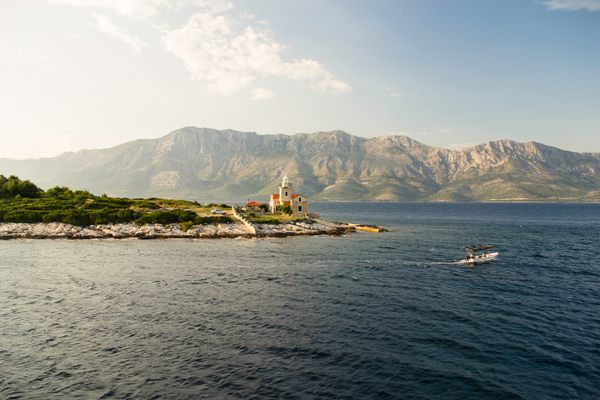Found: Tooth Gunk That Shows Mesolithic Mediterraneans Ate Fish and Plants
Questionable dental hygiene in a man from the 8th millennium B.C. unveils early omnivore tendencies.

A team of researchers found something rather peculiar tucked in the dental tartar of a Mesolithic forager from the 8th millennium B.C., who was excavated from Vlakno Cave on the Croatian island of Dugi Otok. Using carbon and nitrogen stable isotope analysis, the researchers uncovered several microfossils of plants, fish scales, and fish muscle fibers. This is a find never seen in the human remains of Mediterranean people from this age.
There’s substantial archaeological evidence demonstrating that people in the Central Mediterranean caught and ate fish, but this is “the first time we have direct evidence that humans consumed these resources, or used their teeth for de-scaling activities, which is very unique,” University of York archaeologist Dr. Harry Robson said in a press statement.
Finding skeletal remains with both plant and fish microfossils gives researchers greater clues into how Adriatic and Mediterranean foragers lived, and the similarities between their diet and that of modern humans.
Seems like “the healthy ‘Mediterranean’ diet with starchy grasses and fish has very ancient roots indeed,” wrote Sapienza University of Rome archaeologist Emanuela Cristiani. Call it the Meso Diet and you have a potential new fad.
Gastro Obscura covers the world’s most wondrous food and drink.
Sign up for our regular newsletter.


























Follow us on Twitter to get the latest on the world's hidden wonders.
Like us on Facebook to get the latest on the world's hidden wonders.
Follow us on Twitter Like us on Facebook